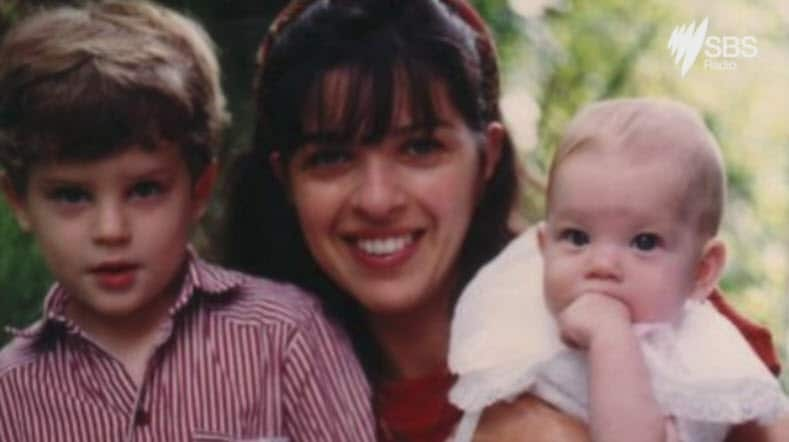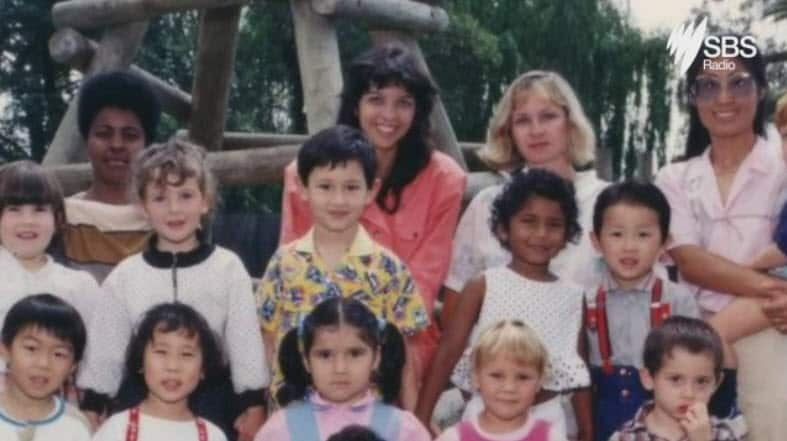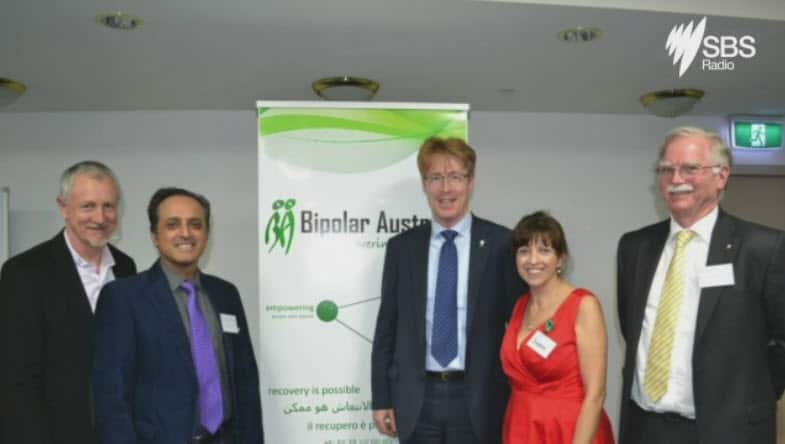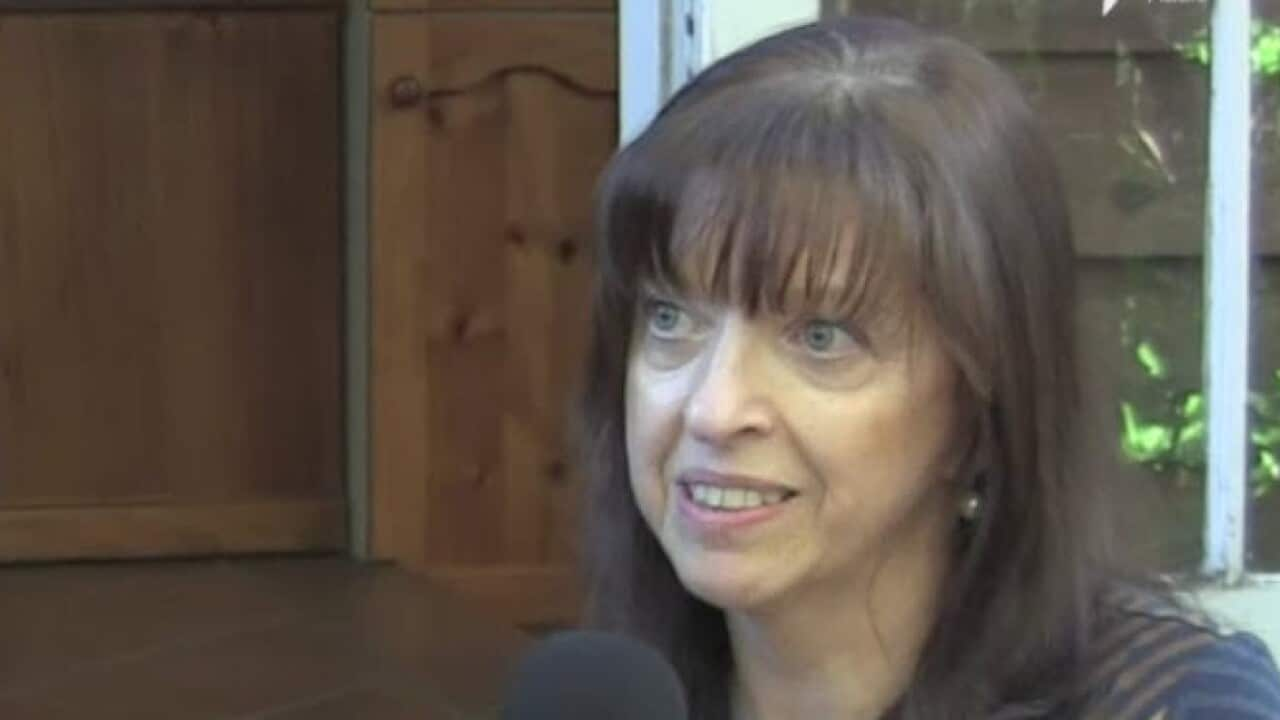Susana, founder of Bipolar Australia, is a beautiful woman from Argentina, outstanding in her studies, athletic and theatre lover, and her history would sail between the shores of the storm and the brightness of the rainbows.
At age 20 and presenting with a psychotic episode doctors diagnosed her with "schizophrenia."
For those experiencing such a condition, their reality is very different from that of others; however, in Susana’s case, her “best friend" as she calls it, had nothing to do with schizophrenia but with bipolarity.
I asked her to introduce me to her "best friend." She described it thus:
“Bipolarity is an imbalance in the front of our brain that affects the mood with manic and depressive episodes, the appetite, sleep and sexual inhibition.” At first, it was a bit of a strange friend. However, Susana says that it is who accompanies her in both the good and the bad moments of her life. Seen this way, it would make a lot of sense.
At first, it was a bit of a strange friend. However, Susana says that it is who accompanies her in both the good and the bad moments of her life. Seen this way, it would make a lot of sense.

Source: Supplied
She tells me as we walk through the garden of her house, that she imagines bipolarity dressed in yellow and blue, a warm yellow full of strength and a stormy blue, but mixed together to make up that green symbol of hope that flutters its flag.
Susana tells me about her attempt of suicide when, misdiagnosed and medicated incorrectly, she gained more than 25 kg.
She says her mind began to fill with black thoughts like: “I am a burden to the world, nobody cares, I should disappear.”
Fortunately, as she relates, no person with bipolar wants to die, they just want the pain to go away. When Susana was 20 years old, she received a government scholarship to study in the United States. Something that might have been a wonderful experience however, became a missed opportunity because of her bipolar condition. She recalls this anecdote:
When Susana was 20 years old, she received a government scholarship to study in the United States. Something that might have been a wonderful experience however, became a missed opportunity because of her bipolar condition. She recalls this anecdote:

Source: Supplied
"I was preparing to visit a school, as part of my studies and while taking a shower I felt as if someone with a higher power, without a voice or an image, was asking me to pass a message of peace to the world.
What better opportunity, being only two streets from the White House I was going to visit the President of the United States that same afternoon to ask him to pass on my message of peace on my behalf. At the break, I told the teachers about my plan for that afternoon, including that all the media would attend to cover this event of global magnitude.
Years later, I discovered that I also called a friend in college to put the television where I would meet with the president. My lecturer was informed of my strange ideas and I was immediately transferred to a hospital ward. "
It took 40 years until finally the medical profession finally correctly identified her condition as bipolar.
Susana says that the much-feared Electric Convulsive Therapies (ECT), formerly known as "Electric Shock,” actually saved her live. She described the therapy as follows:
"It is worth noting that technology has advanced a lot: The person receives general anaesthesia and muscles-relaxant before a low voltage of electricity is applied to one side of the frontal lobe. I explain this treatment in detail for the people offered ECT could accept it without fear. "
Susana experienced mania (a state of elevated mood) after receiving the sixth ECT treatment and finally the doctors could diagnose and medicate her correctly.
In this long sail between the shores of the storm and the rainbow, more things happened that marked the life of Susana.
She married and had two children whom she recognizes as a large part of her life and a huge source of love.
Her husband Osvaldo took the reins of the house, the children and the work, to relieve Susana during her nine months of hospitalisation.
Children make her happy, and helped motivate her to work passionately for 15 years running two kindergartens - something she never thought she could do in Australia, and yet it was a dream come true.
At the age of only 21, her brother lost his life in a car accident and years later, her sister also became ill. Chemotherapy affected her emotionally until she reached a deep depression, and one day after her arrival in Buenos Aires to visit her, she took her own life. Susana always dreamed of having a large family but now she did not have any siblings to accompany her on her trip.
At the end of 2014, Susana was diagnosed with breast cancer. A month after receiving treatment, she had a preventive operation to remove her ovaries and fallopian tubes.
Each blow has not been enough to reduce her smile and this façade has helped make her stronger, more knowledgeable and supportive. Together with her husband, and two participants from the support group, she created "Bipolar Australia," a non-profit organization that aims to raise awareness of bipolarity.
Together with her husband, and two participants from the support group, she created "Bipolar Australia," a non-profit organization that aims to raise awareness of bipolarity.

Susana Bluwol, founder of Bipolar Australia Source: SBS
From her parents she remembers the phrases that have helped her so much along her journey.
From a mother torn by her great loss: "Life is beautiful.”
From her father: “Susana, we are citizens of the world, you must look for a place where you feel free and you can prosper in life.”
The latter advice encouraged her to immigrate to a country like Australia some years ago.
She says she is someone who gives without expecting anything in return, and that brings her happiness and makes her feel unique and special.
Moreover, although long ago she stopped thinking about the future, she imagined growing old with her husband, travelling the world and enjoying a large family, while helping with her work to make people suffer less in the world.
Today when she looks in the mirror, she recognizes a beautiful woman who thinks life is wonderful and even dared to sing one of the songs that could make up the soundtrack of her life, while her husband accompanies her to the piano, "Just the way you are.”
Throughout this time, Susana has grown a lot personally and has learned to be more flexible, more patient and above all to practice resilience, which is nothing more than the capacity we have as human beings to recover from adversity and continue progressing into the future.
That same attitude, quality or competence to face difficult problems and circumstances, helps us to understand life in a healthier and more positive way.
Sometimes the difficult circumstances or traumas allow us to develop resources that were dormant and that the person herself did not know they possessed until that moment.
Those with good emotional intelligence are also more resilient, since their ability to manage emotions makes them less vulnerable, increasing their capacity for recovery, emerging strengthened and transformed in each of their experiences.
Let us say they use the stones of the road to build their fortress.
Susana, you inspire me!
Readers seeking support and information about mental health issues and suicide prevention can contact Lifeline on 13 11 14.
Suicide Call Back Service 1300 659 467
MensLine Australia 1300 78 99 78
Share
